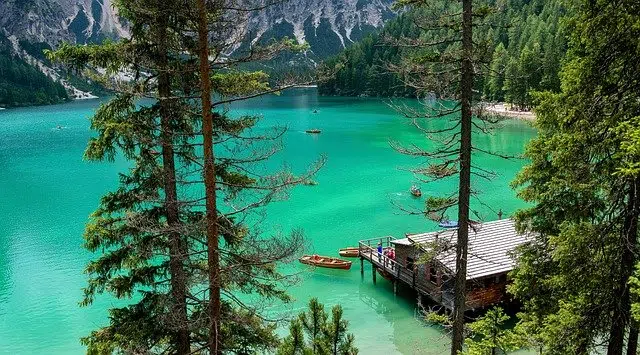
Anything linked to a lake is classified as lacustrine.
The first step to discover the meaning of the lake term that concerns us now is to proceed to establish its etymological origin. This is how we can discover that it is found in Latin, and more precisely in the word lacus which can be defined as "lake."
Everything that is related to a lake is known as lacustrine . It can be a thing or person that is found or does something in a lake or on its shores. To cite some examples: “They say this is the largest lake fish on the planet,” “Tomorrow we will take a lake excursion and we will reach the glacier,” “The lake landscape, with the mountains in the background, is my favorite.”
The idea of lacustrine is used in ecology , geography and ichthyology , always with reference to the environment of a lake. To understand the concept, therefore, the most important thing is to know what a lake is.
What is a lake
Originating from the Latin word lacus , the term lake refers to a stable mass of water that is deposited in depressions or wells in a delimited territory . It can be a block of water that can be salty or fresh, with currents that come from rivers or from the outcrop of groundwater.
Lakes can arise from the use of wells or slopes generated by geological faults, but also from the obstruction of a valley by avalanches on its slopes or by the accumulation of glacial moraines. When the lake is created by man (for example, to build a dam ), we speak of artificial lakes .

Lake excursions are popular tourist activities.
Uses of the term lake
In this sense, we would have to make it known that it is common to use the term lacustrine soil, which is created fundamentally on the beds of lakes. In the same way, it is established that it is a type of continental sedimentation and is usually made up of clays, gravels and silts, among other materials.
Lake ecosystems are very varied, since it depends on the evolution of the environment due to climatic conditions. Sediments deposited on the bottom, environmental changes and pollution vary over time and contribute different characteristics to the lake environment.
In the case of ichthyology, which is the branch of zoology that has as its clear objective the study of fish, we find that in it the term lacustrine is used to refer to fish that stand out for the fact that they complete their life cycle within what are the lakes.
Other uses of the concept
More specifically, we can determine that the lake environment is conditioned by the geometry of the lake (volume, perimeter, area and depth), the climate and, of course, the hallmarks of the water of the aforementioned lake. More specifically, the characteristics of water that can affect the environment in question are its salinity, the nutrients and oxygen it contains, and finally the temperature. And depending on this last value we find various types of lakes: dimictic, amictic, monomictic, polymictic...
The lake activities carried out by humans are multiple and range from the use of water for consumption or irrigation to transportation and recreational navigation, including the generation of electrical energy .
